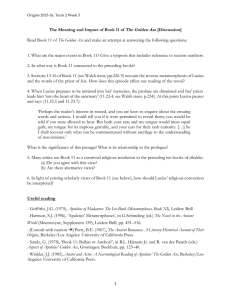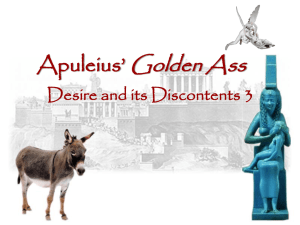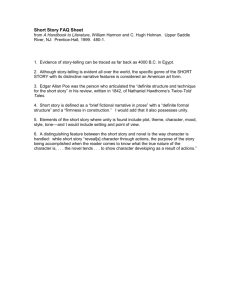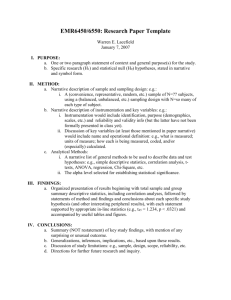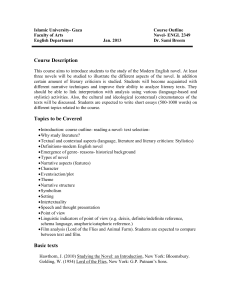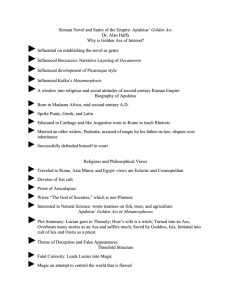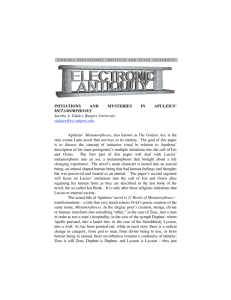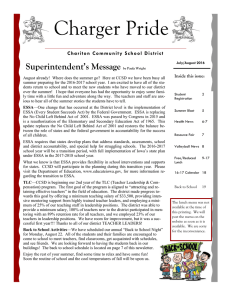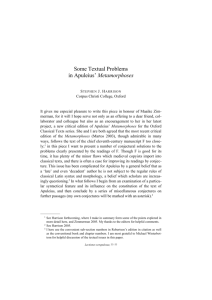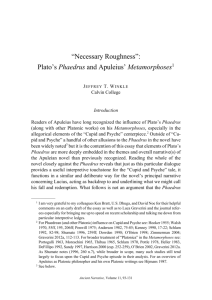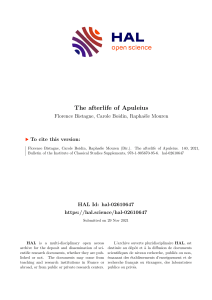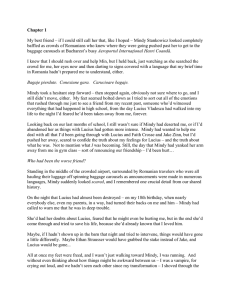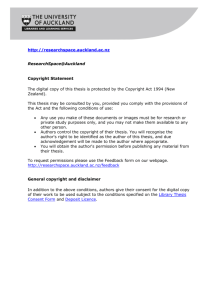Chaereas and Callirhoe The Golden Ass Chariton's
advertisement
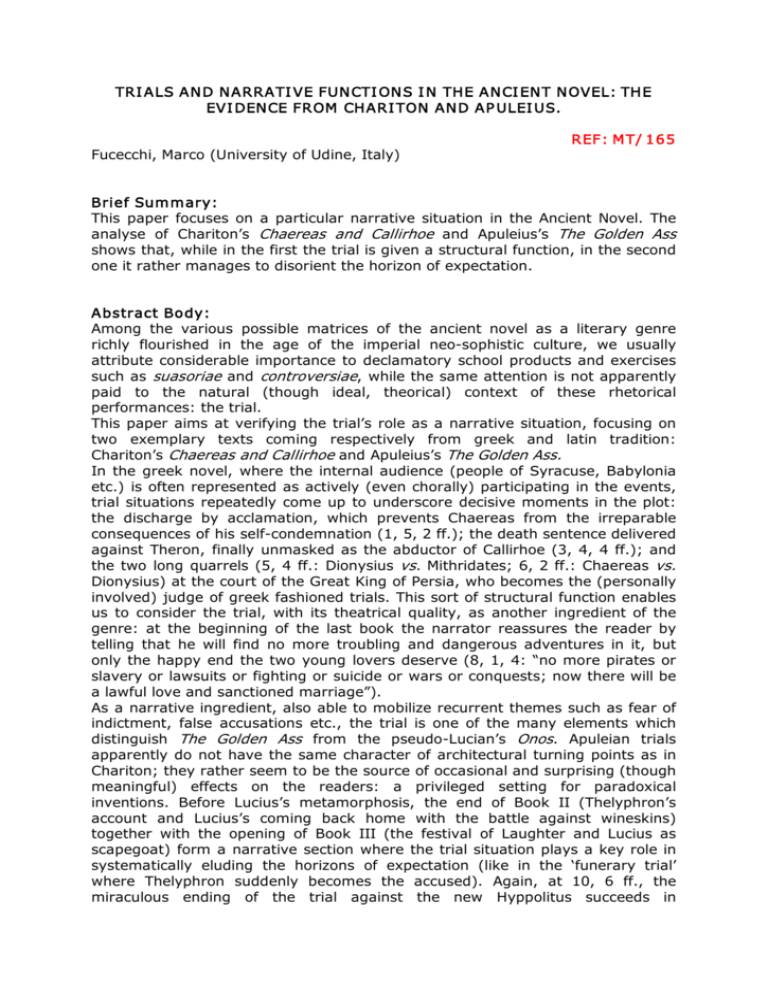
TRI ALS AND NARRATI VE FUNCTI ONS I N THE ANCI ENT NOVEL: THE EVI DENCE FROM CHARI TON AND AP ULEI US. REF: M T/ 165 Fucecchi, Marco (University of Udine, Italy) Brief Summary: This paper focuses on a particular narrative situation in the Ancient Novel. The analyse of Chariton’s Chaereas and Callirhoe and Apuleius’s The Golden Ass shows that, while in the first the trial is given a structural function, in the second one it rather manages to disorient the horizon of expectation. Abstract Body: Among the various possible matrices of the ancient novel as a literary genre richly flourished in the age of the imperial neo­sophistic culture, we usually attribute considerable importance to declamatory school products and exercises such as suasoriae and controversiae, while the same attention is not apparently paid to the natural (though ideal, theorical) context of these rhetorical performances: the trial. This paper aims at verifying the trial’s role as a narrative situation, focusing on two exemplary texts coming respectively from greek and latin tradition: Chariton’s Chaereas and Callirhoe and Apuleius’s The Golden Ass. In the greek novel, where the internal audience (people of Syracuse, Babylonia etc.) is often represented as actively (even chorally) participating in the events, trial situations repeatedly come up to underscore decisive moments in the plot: the discharge by acclamation, which prevents Chaereas from the irreparable consequences of his self­condemnation (1, 5, 2 ff.); the death sentence delivered against Theron, finally unmasked as the abductor of Callirhoe (3, 4, 4 ff.); and the two long quarrels (5, 4 ff.: Dionysius vs. Mithridates; 6, 2 ff.: Chaereas vs. Dionysius) at the court of the Great King of Persia, who becomes the (personally involved) judge of greek fashioned trials. This sort of structural function enables us to consider the trial, with its theatrical quality, as another ingredient of the genre: at the beginning of the last book the narrator reassures the reader by telling that he will find no more troubling and dangerous adventures in it, but only the happy end the two young lovers deserve (8, 1, 4: “no more pirates or slavery or lawsuits or fighting or suicide or wars or conquests; now there will be a lawful love and sanctioned marriage”). As a narrative ingredient, also able to mobilize recurrent themes such as fear of indictment, false accusations etc., the trial is one of the many elements which distinguish The Golden Ass from the pseudo­Lucian’s Onos. Apuleian trials apparently do not have the same character of architectural turning points as in Chariton; they rather seem to be the source of occasional and surprising (though meaningful) effects on the readers: a privileged setting for paradoxical inventions. Before Lucius’s metamorphosis, the end of Book II (Thelyphron’s account and Lucius’s coming back home with the battle against wineskins) together with the opening of Book III (the festival of Laughter and Lucius as scapegoat) form a narrative section where the trial situation plays a key role in systematically eluding the horizons of expectation (like in the ‘funerary trial’ where Thelyphron suddenly becomes the accused). Again, at 10, 6 ff., the miraculous ending of the trial against the new Hyppolitus succeeds in overthrowing the reader’s pessimistic confidence in the repetition of a tragic mythical background. More than dramatising a narrative choice, and involving the audience in the orientation of the plot, the narrating “I” of The Golden Ass seems to use the trials’ surprising outcomes as an indirect way of warning his reader about imminent, unexpected developments. Key Citations: Graverini, L. 2007. Le Metamorfosi di Apuleio. Letteratura e identità, Pisa: Pacini Editore. Frangoulidis, S. A. 2001. Roles and Performances in Apuleius’ Metamorphoses, Stuttgart­Weimar: J.B. Metzler. Keulen, W. ‘Some Legal Themes in Apuleian Context’ in Picone, M. & Zimmerman, B (eds.). Der Antike Roman und seine mittelalterliche Rezeption, Basel: Birkäuser Verlag, 203­229. May, R. 2007. Apuleius and Drama, Oxford: Oxford University Press. Reardon, B. P. 1982. ‚Theme, Structure and Narrative in Chariton’, Yale Classical Studies 27, 1­27.
